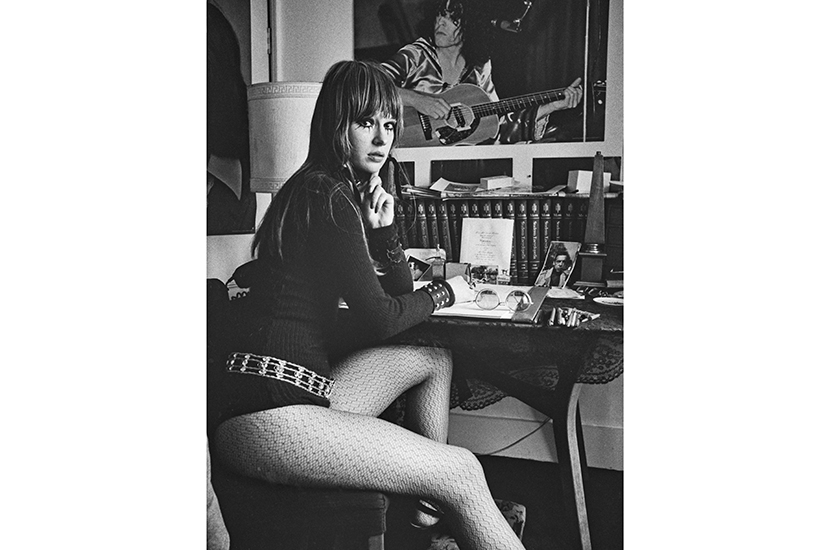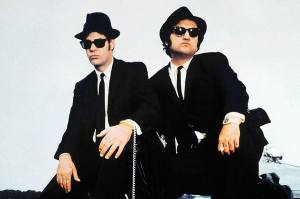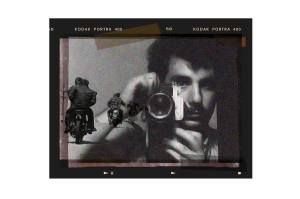Orgies! Gangsters! Drugs! Spies! Scandals! This biography promises much but I’m not sure it actually delivers, or not in any credible way. Searching for facts in the fetid gloop of Pizzichini’s prose feels like bog-snorkeling. The subject, Mariella Novotny, was a ‘party girl’, or prostitute, who turns up like Zelig in many 1960s scandals. She claimed to have had sex with John F. Kennedy and his brother Bobby when she was only 20 — and she was on the scene when Christine Keeler was having her affairs with Profumo and the Russian spy Ivanov. She featured in several News of the World exposés and later contributed an autobiographical serial to the porn magazine Club International.
She was born Stella Marie Capes in 1942 in Sheffield. Her mother, Constance Capes, was a shorthand typist in Grimsby (though Keeler said she was a tart). No father is listed on her birth certificate but Mariella always claimed he was a high-up in the Czech government and that she spent her early childhood in a Czech palace and then in a German refugee camp where she witnessed a child being raped. ‘But whether that trauma took place in Germany or Grimsby we will probably never know,’ breezes Pizzichini, which tells you all you need to know about her attitude to facts.
By 1960 Stella Marie Capes had moved to London, and was officially a dancer, though actually a highly paid prostitute whose speciality was whipping her clients with a cat o’ nine tails. She was a blonde pocket Venus (only 4ft 7in) who used a lorgnette because she refused to wear glasses. On January 29, 1960 she married one Hod Dibben. He was 54 and described as a ‘dealer in historic houses’ and she as a Windmill dancer. Their wedding reception was photographed by an up-and-coming photographer called David Bailey and Hod announced that he had given his bride a 20-room mansion in Sussex and a luxury flat in Eaton Place. But unfortunately when she cut the wedding cake it proved to be filled with sawdust. The best man, Dr Teddy Sugden, was an abortionist who ‘enjoyed sex games with reptiles in his surgery on Half Moon Street’. The night before the wedding he asked Mariella if he could watch while she simulated sex with a python.
Hod was a sadomasochist who got his kicks from watching his wife have sex with other men. He introduced her to an American called Harry Alan Towers who invited her to New York to do some modeling. He made her change her name to Mariella Novotny and installed her in a seedy hotel, where she earned about $400 a week from prostitution, of which Towers took $300. But then she met Peter Lawford, who introduced her to his brother-in-law JFK at a party. They adjourned to a bedroom and were chatting about England, and undressing, when they were interrupted by the host’s girlfriend cutting her wrists in the next-door bathroom. ‘I have never known a party finish so quickly,’ said Mariella. But JFK was keen to meet her again — and did so when he stayed at the Carlyle Hotel for a week before his inauguration. The Carlyle was linked by tunnels to nearby apartments and Lawford set her up in one with two other girls dressed as nurses to administer to JFK’s physical needs.
Towers was eventually arrested for white-slave trafficking and Mariella was questioned by the police, who found a horsewhip in her handbag. She was charged with ‘loitering for the purpose of prostitution’ but, because she was a minor, she was only given three years’ probation. Towers skipped bail and disappeared to Moscow. She went back to Hod in England.
Her ambition now was to be ‘the best hostess of my age’, and she and Hod gave swingers’ parties at their flat in Hyde Park Square, where she hosted the ‘Man in a Mask’ party and acquired a reputation as ‘the government chief whip’. Inevitably she met Keeler and Mandy Rice-Davies, who described her as ‘a siren, a sexual athlete of Olympian proportions’. Britt Ekland played her in the 1989 film Scandal about the Profumo affair, but she was not important enough to be mentioned in the Denning report.
In 1971 she published a novel, King’s Road, which was supposed to be the first of a six-book deal, but there was no demand for a follow-up. Club International hired her to write her erotic memoirs but soon dropped her. Thereafter, though she always said she was a writer, she made her living as a Soho stripper and occasional police informer. By now she was heavily into drugs. She died of a Temazepam overdose in 1983, though as a friend remarked: ‘Very hard to die of an overdose when she’d been taking them for 20-odd years.’
So much for the life. But what do we make of this book? I assumed at first it was a tabloid farrago, intended to titillate readers who get excited by words such as ‘orgy’. But then I realized that Pizzichini regards herself as a serious writer. She mentions that she has taught creative writing classes and, in her acknowledgements, thanks ‘the Royal Literary Fund for their ongoing support and generosity, the Society of Authors for their generosity, and James Morton for his expertise’. James Morton features on Amazon as the author of several books on how to make sourdough bread. Surely not? OK. So there’s another James Morton who wrote books about the London underworld, so presumably he is the one. But then, most weirdly of all, there is Rachel Cusk quoted on the dust jacket saying: ‘Lilian Pizzichini is a fine and profound writer.’ Really? Perhaps Cusk can find meaning in sentences such as ‘Shadows were flitting across Soho and disappearing into the miasma of the city like spindle-limbed villains in a pantomime’. Not me.
This article was originally published in The Spectator’s UK magazine. Subscribe to the World edition here.


















